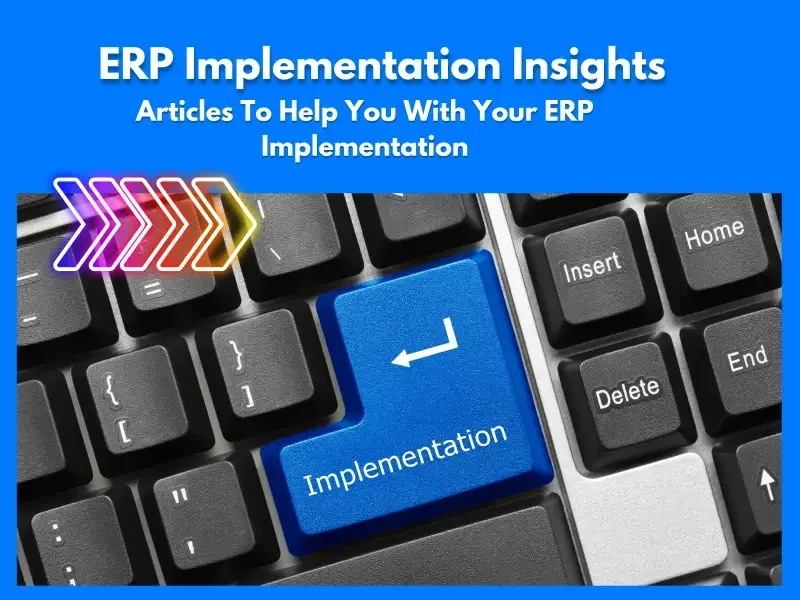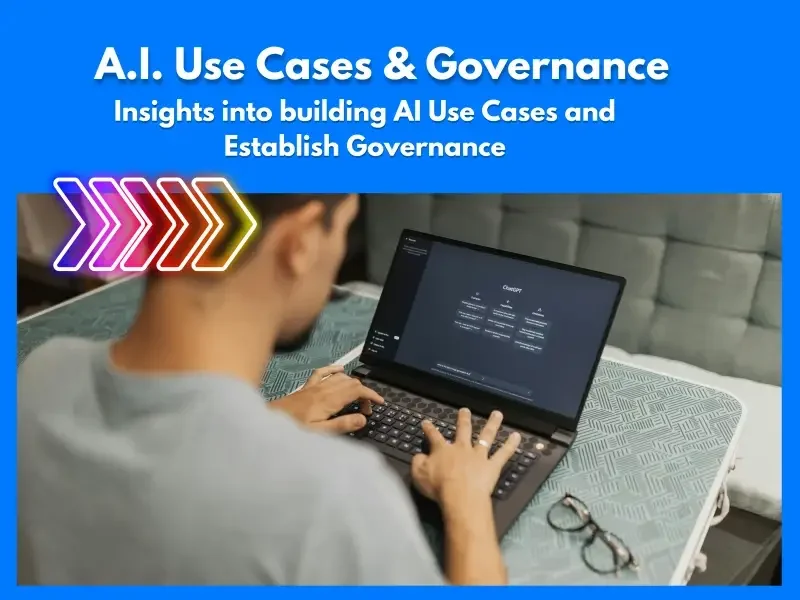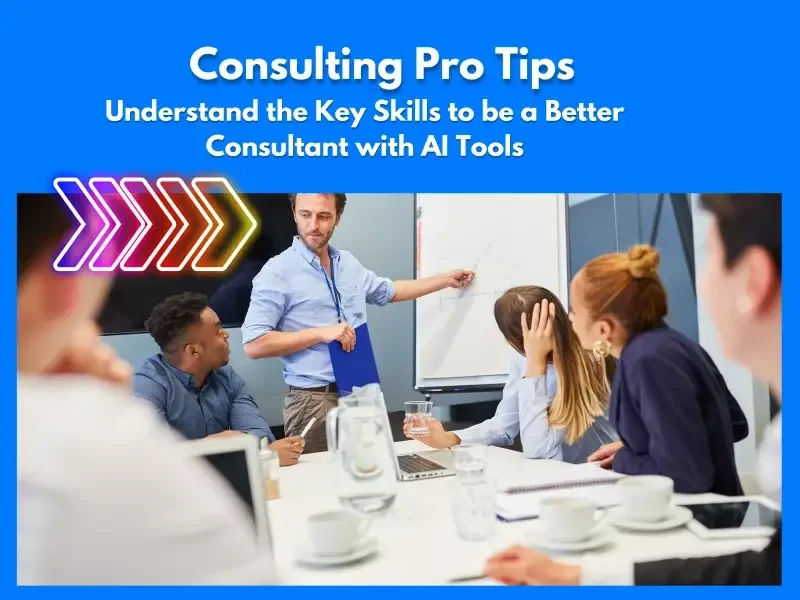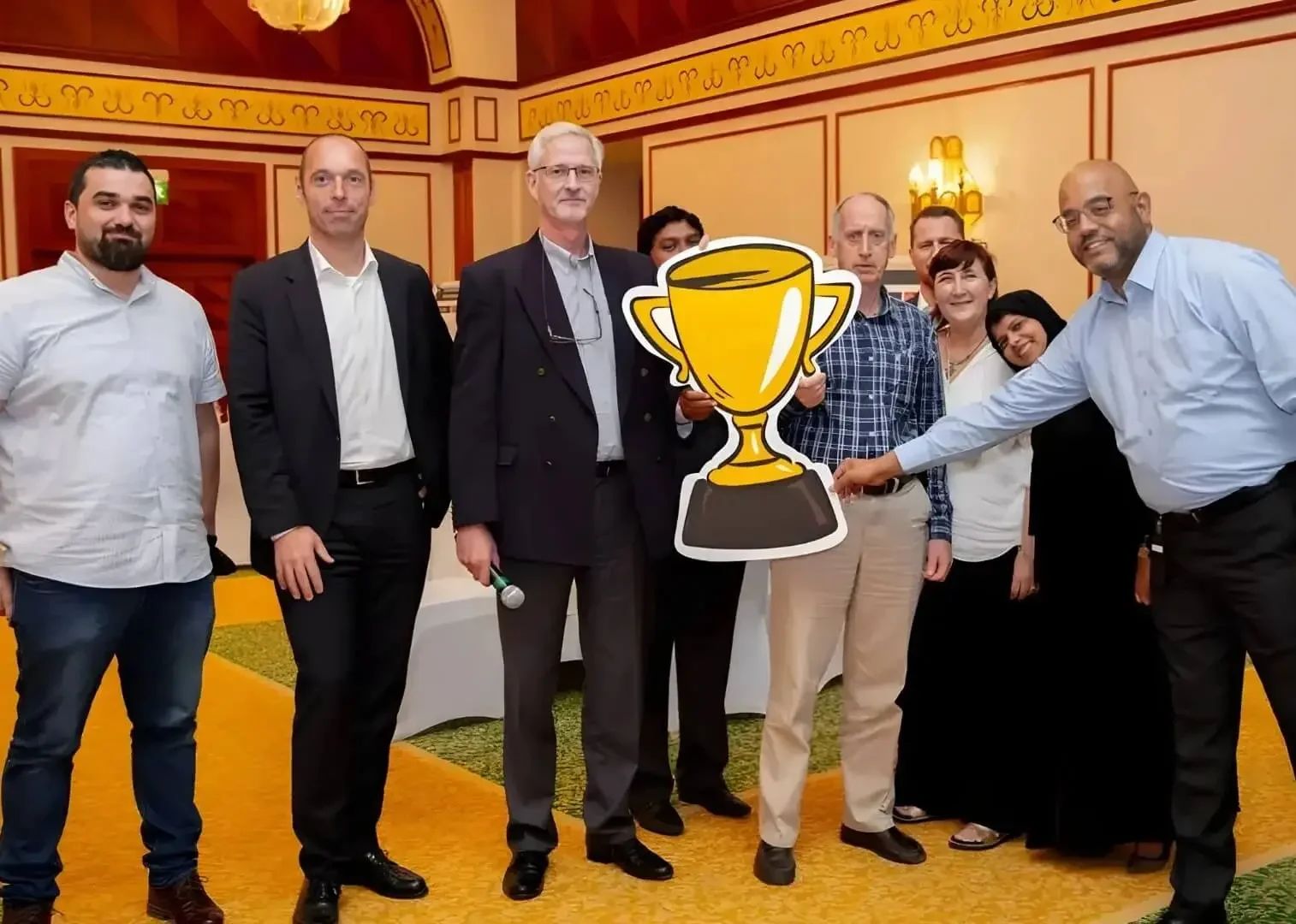Implement ERP and AI Systems That Actually Work for Your Business!
Most businesses spend hundreds of thousands on AI and SAP Implementation Consulting that never works properly. I help you select the right system, manage vendors who actually deliver, and implement real ROI AI systems.
I’m Noel D’Costa and over the last 24+ years, I’ve helped global companies and small businesses make ERP systems like SAP, Oracle, IFS and Microsoft Dynamics as well as AI systems, actually work across industries, countries, and high-stakes environments.
I’ve saved companies millions by avoiding the disasters that kill most projects. In short, I am your project insurance policy!
Proven ERP Implementation Results

However, I can confirm that my experience with Noel has been challenging, exciting and rewarding.

Noel did a splendid job in helping us to define and implement our road-map, which included SAP, our ERP as well as other reporting solutions, using Microsoft and automation tools like Robotics and Process Automation.

He’s not only a role model in the professional space but also someone who leads with empathy, always willing to lend an ear or offer guidance when needed.

This was a very substantial undertaking and it is huge credit to Noel that the programme has delivered on time (18 months), on budget and with no major issues..

Noel's ability to communicate clearly and deliver results that not only meet but exceed expectations has made a lasting impact. He is a true leader who believes in pushing boundaries, knowing that potential is limitless when leveraging the right SAP tools and strategies.

His inclusive leadership fostered a collaborative environment where employees thrived and felt empowered to contribute their best.

His functional expertise, combined with his financial /accounting knowledge and detailed business process understanding and attention to detail gained from working in Internal Audit are invaluable tools that Noel uses to drive business change and deliver amazing results.

His attention to detail and ex-audit background is an unusual, yet refreshingly formidable combination. With his razor sharp commercial acumen, he is a great partner to work with all round!

He builds strong business focused technology organisations and capabilities and develop them into talented teams.
If Your SAP or ERP Project Is Failing, it’s not just the Software

You bought SAP, Oracle, or Microsoft Dynamics to streamline operations, improve visibility and reduce manual work. But here’s what you’re seeing:
- Users avoiding the system and reverting to spreadsheets.
- Reports and dashboards that don’t match what’s happening on the ground. Delays, rework, scope creep, and budget overruns
- Integration between departments is clunky or missing AI features were promised, but nothing meaningful got delivered.
You didn’t plan for this. But it’s common. I can tell you that the problem isn’t the software, it’s how it was implemented:
- No real ownership from the business side.
- Poor alignment between process and system. Over-engineered solutions with no user input.
- Weak governance and unclear accountability. A business case that was built to get approval, not to guide delivery
I Help You Get Your ERP Program on Track, Without Starting Over
I don’t sell software. I don’t throw technical terms at the problem. I step in where things are broken and guide ERP projects, back to what they were meant to do: DELIVER RESULTS.
Led successful end-to-end ERP and AI projects and digital transformation strategies, including SAP S/4HANA from blueprint to post-go-live support
Integrated AI solutions for predictive analytics, intelligent automation, and process optimization with tangible ROI.
Delivered measurable outcomes: faster go-lives, reduced downtime, improved data integrity & massive cost savings.
Noel's been featured on











How I Help Businesses Win with ERP and AI
I work with businesses in six key areas where ERP and AI projects need expert guidance. These services address the practical challenges that determine whether your technology investments succeed. From vendor selection to risk management, I help you navigate the decisions that make the difference between success and costly mistakes.
- Plan SAP projects that stay on budget and meet deadlines
- Configure systems that match your actual business processes
- Be your guide and support during these implementations.
- Select ERP systems that fit your size and paying only for what you need.
- Manage vendors who don't deliver on promises and timelines
- Guide implementations so that your business runs smoothly
- Find AI opportunities that generate real ROI for your business
- Build practical AI roadmaps that start small and scale up
- Create governance frameworks that manage AI risks properly
- Establish AI policies that protect your business from legal risks
- Create oversight frameworks that ensure responsible AI deployment
- Build compliance processes that satisfy regulators and stakeholders
- Show you how to break into ERP consulting without prior experience
- Teach the skills and certifications that get you hired quickly
- Breakdown the key requirements to ensure your success.
- Build compelling business cases that get executive approval
- Calculate real ROI projections that justify your investment
- Present proposals that address stakeholder concerns upfront
This Isn’t for Everyone. Here’s Who Gets the Most Value!
After 24+ years in ERP, I’ve learned this: It’s not the technology that makes or breaks your project, it’s who’s leading it.
I don’t work with everyone. I partner with teams who are serious about making SAP, Oracle, or AI actually work in the real world. If that’s you, I’ll bring everything I’ve got. If it’s not, I’ll tell you upfront, and won’t waste your time.
We’ll Work Well Together if...
You’re a CIO, CFO, program sponsor, or hands-on lead driving SAP, Oracle, or Dynamics initiatives
You’re mid-implementation or you’ve gone live but it’s not working as promised
You're serious about adding AI to ERP, but want clarity, a roadmap, and not buzzwords
You want direct, experienced input, not a junior team or a bloated vendor
You care about outcomes, not presentations
I’m Probably Not a Fit if...
You’re just shopping for software with no urgency to act
You want someone to rubber-stamp a broken plan
You’re only looking for the cheapest option
You don’t have decision-makers engaged or ready to move
You need basic SAP support or helpdesk-style assistance
If you’re in one of these situations, there’s a high chance I can help. If you’re not, I’ll tell you straight up, I’m probably not the right guy.
From First Call to Go-Live, Here’s What It Actually Looks Like When We Work Together.
1. Learn Your Business
We start by understanding your goals, challenges, and how you actually work, no jargon, just clarity.
→ Why? So you don’t waste time or money on tools that don’t fit. This helps us solve your problems, not just install software.
2. Recommend What Works
We suggest simple, practical solutions, not a long list of confusing options.
→ Why? You avoid the trap of overbuying, getting sold on hype, or ending up with something too complex.
3. Make it Work For You
We set everything up to match the way you and your team already work.
→ Why? You don’t need to change how your business runs just to fit the tech. It fits you, not the other way around.
4. Launch + Keep it Simple
We help you go live and stick around to make sure it all runs smoothly.
→ Why? You’re not left guessing or troubleshooting. You stay focused on your business—we handle the rest.
Start Here: Practical Insights to Make Your ERP Work


Real SAP projects from start to finish. How to plan, execute, and actually get your team using the system. Common problems and how to avoid them.


Practical AI applications that work in real businesses. Setting up governance frameworks that protect you while letting teams innovate. Not just theory.


What actually works when dealing with clients. How to manage expectations, deliver results, and build relationships that last. Lessons from my experience.
"I safeguard your investment from the predictable mistakes that turn ERP projects into business disasters."
Lessons From the Projects That Taught Me the Most

I write about the ERP implementations that taught me the most valuable lessons. Not the smooth ones that went according to plan, but the projects that went off-plan and forced me to figure out solutions!
Most ERP consultants only share their success stories. I think that approach misses the point entirely. The real learning happens when things go wrong and teams start panicking about go-live dates.
My blog focuses on these experiences:
- What actually goes wrong during ERP implementations and why it happens repeatedly
- Early warning signs that most project teams miss until too late
- Real solutions that work when you are already deep in implementation problems
- Honest vendor insights about what they do not tell you during sales presentations
These articles come from 24+ years of working directly with companies implementing SAP, Oracle, and other ERP systems. I share the mistakes I have made so you can avoid them yourself.
What can you expect from working with me.
You get someone who actually stays involved throughout your entire project. Most consulting firms sell you the senior partner, then you never see them again after the contract is signed. I stay engaged because honestly, my reputation depends on your success.
Here’s what working with me looks like:
- Direct involvement – I work with your leadership team personally, not junior consultants learning on your dime
- Business focus first – We start with what you need to achieve, then figure out how technology gets you there
- Honest advice – If your current system just needs adjustments instead of replacement, I will tell you that upfront
- Real accessibility – You have my cell phone number when problems come up
Furthermore, you get someone who has watched these projects fail in predictable ways over the years. I help you avoid common mistakes before they happen rather than fixing them after the damage is done.

Frequently Asked Questions
Choosing your ERP specialization feels overwhelming when you see all the options available.
Moreover, everyone has opinions about which module offers the best business efficiency, but honestly, most advice feels outdated.
I have worked across several ERP modules over the years, and additionally, I have seen how market demand shifts constantly. What was hot five years ago might not be the best choice today.
I will walk you through the realistic pros and cons of each major ERP module and how it will simplify your business operations.
What experience do you have with ERP implementation across different industries?
I have been working with ERPs for 24 years now. Started in manufacturing, then moved into finance, retail, defense work, and public sector projects. SAP is really where I spend most of my time these days.
I have guided a lot of implementations over the years using the best SAP documentation tools I can get my hands on. Oracle, IFS, and Microsoft Dynamics come up too, depending on what the client already has.
- Manufacturing companies call me when things go wrong with production planning. You know how it is. Inventory gets stuck in the wrong warehouse for months. Quality issues make it all the way to customers before anyone notices. I help their teams figure out what actually happened and guide them toward ERP decisions that actually work.
- Finance clients want real ROI, not just reports that look impressive in meetings. I work with them to make sure their implementations streamline actual processes. Getting both efficiency and business value requires someone watching the whole thing carefully.
- Retail is interesting because supply chain problems cost them money immediately. They cannot see inventory across locations. Stockouts happen constantly. I help executives understand how to use their ERP data for purchasing decisions that make sense.
The approach changes based on company size. Small businesses need quick wins that pay back fast. Large companies need someone to keep huge projects focused on results that matter.
Same story everywhere though. Companies buy ERP to solve problems and make money. Teams get lost in technical stuff and forget why they started.
How do you help us have a smooth ERP implementation without disrupting our ongoing business operations?
This question comes up in pretty much every first meeting I have. Everyone wants to completely change their systems but somehow keep everything running exactly like before. Honestly, it sounds crazy when you first think about it, but I have figured out how to make it work over the years.
- I always start by talking to the people who actually do the work every day. Not the IT team necessarily, but the folks in operations who know what really happens. We sit down and figure out which stuff absolutely has to keep running and what we can maybe mess with for a while.
- I learned the hard way that phased rollouts work way better than trying to change everything at once. Perhaps we start with just the accounting system in one office. Get that working properly first. Then move on to inventory or whatever comes next.
- Running both systems at the same time during transitions has probably saved my reputation more times than I want to admit. Your old system keeps working while we test the new one. Costs more money but beats having your business shut down for weeks.
- I keep everyone in the loop about what is happening and when. People hate surprises with their daily routines.
- Training starts way before we actually switch over. Multiple sessions work better than cramming everything into one week.
Something always goes a little sideways. Good planning just makes sure it stays small.
What ERP implementation methodologies do you follow to achieve successful outcomes?
Each ERP platform really has different quirks, so the methodology should probably match what works best for that particular system. However, the core principles stay pretty much the same across all platforms.
- For SAP projects, I always follow SAP Activate because it simply works. I have tried other approaches over the years, but honestly, I keep coming back to this one. Perhaps it just fits how SAP actually operates in real business environments.
- When I work on Oracle projects, I typically use Oracle Unified Method or OUM. It has similar phases but Oracle has its own way of doing things.
- Microsoft Dynamics projects usually follow Sure Step methodology, although Microsoft keeps updating their approach. IFS has their own implementation framework too, which works well for their manufacturing focus.
Most of these methodologies have similar phases that business people can actually understand. Discover, Prepare, Explore, Realize, Deploy, and Run. Nevertheless, the Explore phase is where I spend most of my time because we build working prototypes and show people exactly what they will get.
What I really appreciate about modern methodologies is the agile approach built into them. Instead of writing those massive requirements documents that nobody ever reads, we do short sprints every couple of weeks. Therefore, people see real progress and can give feedback before we head in the wrong direction.
These methodologies come with templates and accelerators that save considerable time. Furthermore, I have used these successfully across different ERP platforms and they really speed up delivery.
Nevertheless, I always adjust the approach based on company size and complexity. Small businesses do not need every single step, while large enterprises usually want more documentation and approval gates.
What's the difference between you and other ERP service providers?
Most ERP service providers want to sell you software and then disappear. I focus on making sure your project actually delivers what you paid for. Perhaps that sounds obvious, but you would be surprised how many consultants just follow their standard playbook and hope for the best.
The biggest differences come down to how I actually work with clients:
- Direct involvement: I work directly with your leadership team instead of handing you off to junior consultants. When you hire big firms, you meet the senior partner during sales, then never see them again.
- No sales pressure: I do not have quotas to hit or additional services to sell. Therefore, I can tell you the truth even when it might cost me money. If your current system just needs tweaks instead of complete replacement, I will tell you that upfront.
- Business focus: My approach focuses heavily on outcomes rather than technical features. I have seen too many projects that implemented every bell and whistle but failed to solve the original business problem.
- Industry experience: I bring specific experience from working with companies your size in your industry. Big consulting firms often assign whoever is available, regardless of whether they understand your challenges.
Most service providers also work on dozens of projects simultaneously. I deliberately limit my client load so I can give proper attention to each implementation. Your project gets the focus it deserves instead of being just another number on someone’s utilization report.
Furthermore, I stay involved throughout the entire project because my reputation depends on your success. Most vendors deliver what you ask for and leave. Partners help you figure out what you actually need and stick around to make sure it works.
The decision usually comes down to whether you want a vendor or a partner.
I'm confused which ERP I should take? What is your process of selecting an ERP solution?
This confusion makes perfect sense because choosing an ERP feels overwhelming when you start looking. I have seen executives get paralyzed by all the vendor presentations and conflicting advice. Therefore, I developed a straightforward process that cuts through the marketing noise.
First, I spend time with your team figuring out what problems you really need to solve. Not what vendors tell you that you need, but what actually keeps you awake at night. Maybe inventory numbers are always wrong, or perhaps financial reporting takes weeks instead of days.
Then I examine your industry requirements and company size. Manufacturing companies need different functionality than retail. A 50-person company has totally different needs than a 5000-person enterprise. These factors eliminate probably half the options immediately.
My evaluation process includes:
- Budget reality check including implementation costs
- Technical requirements and integration needs
- User adoption factors and system complexity
- Vendor stability and long-term support
I typically narrow it down to 2-3 realistic options. Then we do proof of concept sessions where vendors demonstrate your actual workflows, not generic demos.
The right choice usually becomes obvious during these sessions.
Do you also help with license and contract negotiations with the ERP vendor?
Yes, I definitely do this and honestly, it might be one of the most important things I help with. I have watched companies lose incredible amounts of money because they walked into negotiations completely unprepared. Vendors absolutely love when customers show up without understanding how licensing actually works.
Most people assume licensing is straightforward, but it gets messy really fast. SAP has named users, concurrent users, and different types depending on what you access. Oracle counts processor cores with weird multipliers. Microsoft keeps changing their Dynamics pricing structure every couple years it seems.
I help clients figure out what they actually need before we talk to vendors. Sales reps love convincing people they might need extra capacity someday, so they buy way more licenses than necessary.
During negotiations, I focus on:
- Fair pricing based on actual usage
- Long-term maintenance costs
- Reasonable implementation timeline penalties
- Rights to customize and access your data
Vendors respect when someone understands their pricing models. They offer better deals when they realize you know what you are doing.

